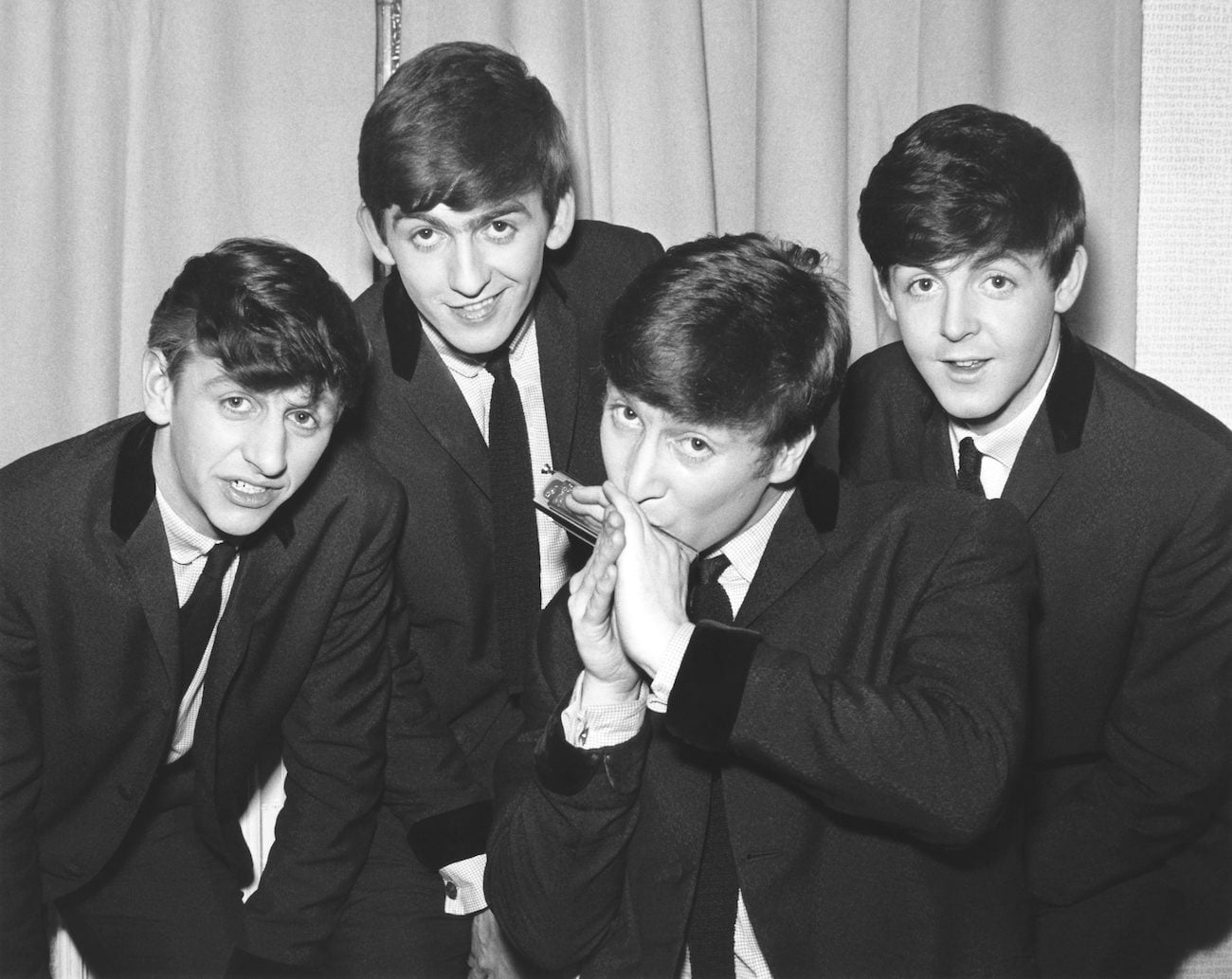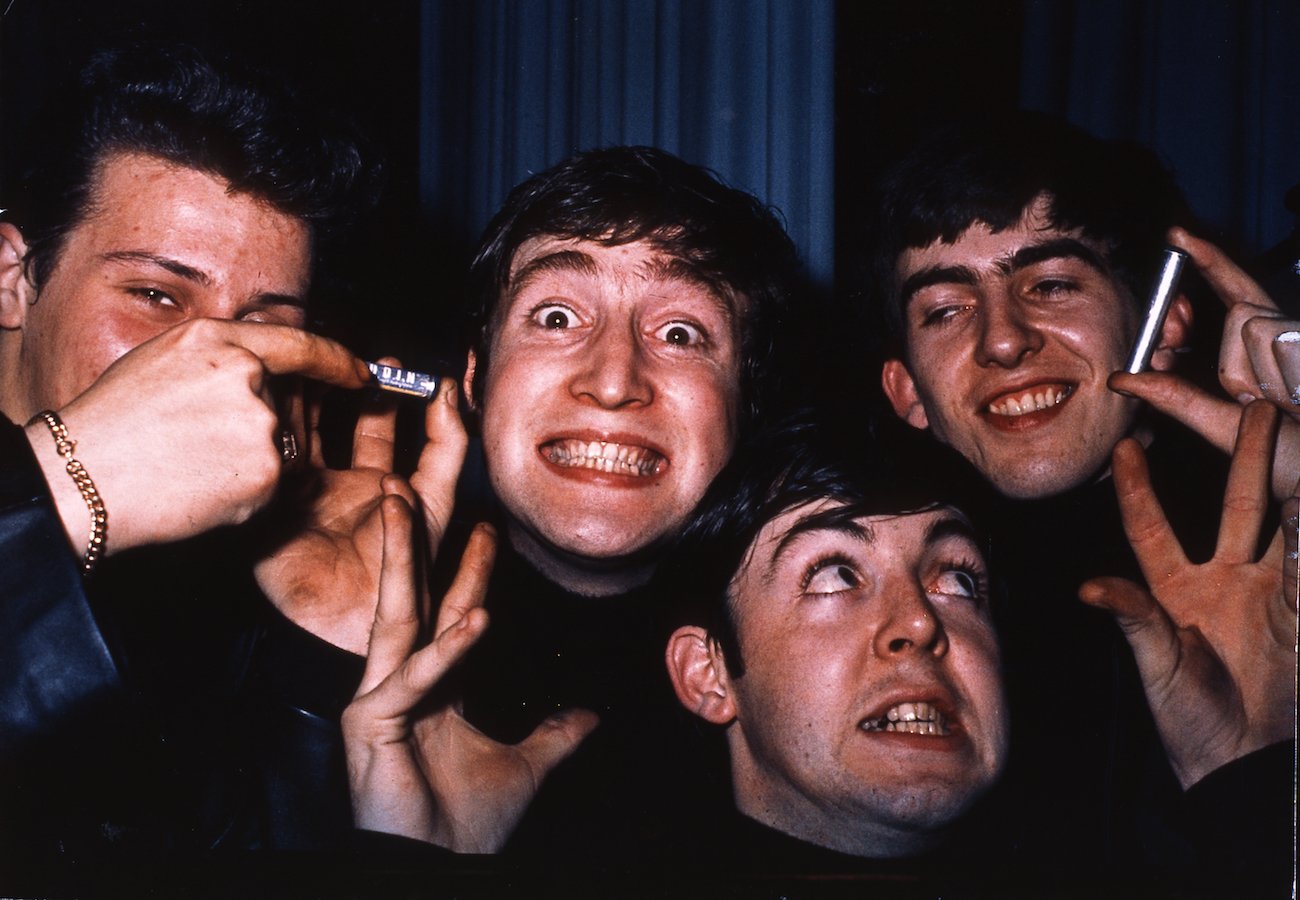
John Lennon Poured a Pint Over a Woman’s Head at George Harrison’s Brother’s Wedding, but No One Reacted
John Lennon poured a pint over a woman’s head at George Harrison‘s brother’s wedding during The Beatles‘ early days. He’d had a rough childhood and became a bit of a rebel in his teenage years. He liked acting like a tough, witty guy.
However, George saw right past John’s facade.

John Lennon had a rough childhood and became a rebellious teenager
People have portrayed John as a saint, but there were demons in his world. His parents abandoned him when he was young, and he had to live with his strict Aunt Mimi. His Uncle George died, and later his mother. Their deaths opened the door for rebellious teenage years.
“It’s understandable that in the first flush of grief, people wanted to pretend he was a saint, but that’s the last claim Lennon ever would have made for himself,” writer Rob Sheffield told the BBC. “In addition to everything else he was, he was the most caustic, sarcastic, withering wit in the music world. So it sells him short to portray him as a simple-minded optimist.”
John was especially cruel to people with disabilities and women. His first biographer, Ray Coleman, said he “developed an instinctive ability to mock the weak, with whom he had no patience,” (per the Guardian).
In his interview with Playboy, published two days before he died, Lennon admitted, “I used to be cruel to my woman, and physically… any woman. I was a hitter. I couldn’t express myself, and I hit.”
George’s brother Harry witnessed John’s early violence toward women.
John Lennon poured a pint over a woman’s head at George Harrison’s brother’s wedding
When John met George and Paul McCartney, he came across as a confident, sometimes brash, rebel. They used George’s brother’s wedding to practice performing, and John’s violence came out unexpectedly.
In Martin Scorsese’s documentary, George Harrison: Living in the Material World, he said, “Our wedding was just one of those occasions were they thought they would practice on people and see what happened. They were not exactly what the majority of people there expected.
“They had a tea break. An elderly lady who was one of the guests came along to play the piano who was a real pub player. She could really hammer out tunes that everybody wanted to sing to. The three lads reappeared from the bar, pints in hand, and John just poured a pint over this lady’s head, just straight over the head, saying, ‘I anoint thee, David,’ and just walked away.
“And this lady surprised me because there was absolutely nothing. There was no reaction. She just smiled and got up and went away and got dry again, you know. And I thought it was funny because, like in those days, people used to say, ‘Oh yeah, he had a wedding in Liverpool. How many fights were there?’ But, like, there wasn’t even a fight. The nearly-fight was John Lennon pouring a pint on her head.”
George said his bandmate wasn’t as harsh as people thought
Despite his violent and arrogant tendencies, John became the confident leader that The Beatles or the Quarrymen needed to get off the ground. In Scorsese’s documentary, George said when he met John, he had a lot of power.
“Sometimes they’d pick somebody to march behind on the way to war,” George explained. “Well, he was certainly out front.”
George looked up to John. He could see through John’s rough exterior and tell that there was a lovely guy underneath. In 1989, George told Mark Rowland (per George Harrison on George Harrison: Interview and Encounters) that John was strange sometimes, but always apologized for his behavior.
“But John, you know, he was a good lad, he was—there was a part of him that was saintly, that aspired to the truth and great things,” George said.
“And there was a part of him that was just, you know … a looney! [Laughter.] Just like the rest of us! And he had his mood swings and that, but he was basically very honest. If he was a bastard one day, he’d say, ‘Ah well, f*** that, you know, I’m sorry, I was wrong.” And he’d just deflate any feeling you had against him, any negative feeling. Not like some other people I know who sit on walls … and don’t come clean.”
John dealt with his anger the best he could. People remember John for his contributions to music and culture.
The Guardian wrote, “He was a bohemian and a rebel, by turns arrogant and insecure; the classic outsider who came to define the boundaries of the mainstream by reacting against them; the nowhere boy who became Britain’s most famous pop star but never quite transcended his troubled childhood.”


